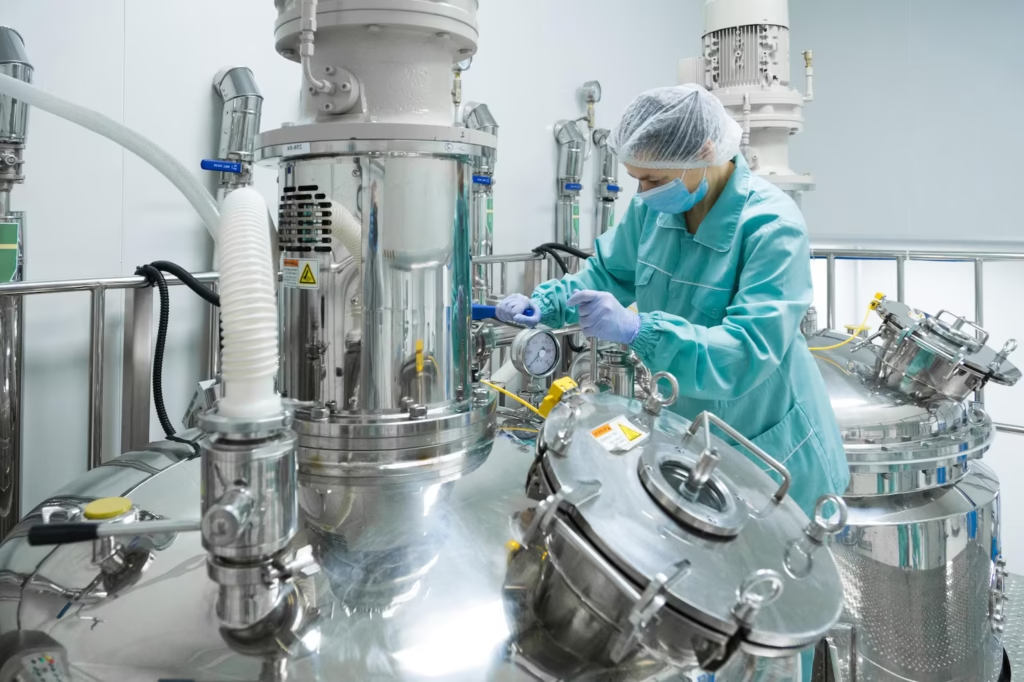Pharmaceutical plant operations are complex, and even experienced teams face daily challenges that can impact production, compliance, and efficiency. If you’ve ever struggled with production delays, equipment downtime, or regulatory hurdles, you’re not alone.
In this article, you’ll discover the most common challenges in pharma plant operations and actionable solutions to overcome them. By reading this post, you’ll learn practical strategies to streamline processes, maintain compliance, and optimize your pharmaceutical manufacturing operations. Whether you’re a plant manager, quality assurance professional, or part of a pharma consultancy company, these insights will help you improve operational performance.
1. Maintaining Regulatory Compliance
Understanding the Challenge
Pharmaceutical plants must comply with stringent regulations such as GMP (Good Manufacturing Practices), WHO, and USFDA standards. Failing audits can halt production and damage your reputation.
How to Solve It
- Regular Training: Conduct continuous training for staff on compliance updates.
- Internal Audits: Schedule routine internal audits to identify gaps before official inspections.
- Document Management: Maintain up-to-date SOPs, batch records, and quality documents.
- Consultancy Support: Engage a trusted pharmaceutical consulting firm to review compliance and provide expert guidance.
2. Equipment Downtime and Maintenance
Understanding the Challenge
Unexpected equipment failures can halt production and increase operational costs.
How to Solve It
- Preventive Maintenance: Schedule regular equipment checks and maintenance.
- Predictive Analytics: Use IoT sensors and analytics to predict failures.
- Staff Training: Ensure operators are trained to spot early signs of malfunction.
- Vendor Support: Maintain strong relationships with equipment suppliers for rapid troubleshooting.
Tip: Incorporating predictive maintenance software can improve uptime by 20–30%.
3. Production Delays
Understanding the Challenge
Delays often occur due to inefficient workflows, material shortages, or bottlenecks in production lines.
How to Solve It
- Process Optimization: Review plant layout and workflows for efficiency.
- Inventory Management: Implement robust inventory tracking to prevent raw material shortages.
- Cross-Training Staff: Equip teams to handle multiple tasks and reduce dependency on specific operators.
- Pharma Consultancy Assistance: Partner with pharmaceutical manufacturing consultants to redesign processes for maximum efficiency.
4. Quality Control Issues
Understanding the Challenge
Maintaining consistent product quality is critical. Deviations can lead to recalls or regulatory penalties.
How to Solve It
- Strict QC Protocols: Implement rigorous quality checks at each stage of production.
- Automation: Use automated systems for measurements, inspections, and testing.
- Root Cause Analysis: Investigate every deviation and implement corrective actions.
- External Audit Support: Engage a pharma consultancy company for independent audits and recommendations.
5. Workforce Management
Understanding the Challenge
High employee turnover or lack of skilled staff can affect operational efficiency.
How to Solve It
- Training Programs: Conduct ongoing skill development and compliance workshops.
- Retention Strategies: Offer incentives, career progression, and a positive work culture.
- Effective Communication: Keep staff informed about operational changes and expectations.
6. Waste Management and Sustainability
Understanding the Challenge
Pharmaceutical operations generate chemical, biological, and packaging waste, which must be handled safely.
How to Solve It
- Waste Segregation: Implement clear segregation and disposal protocols.
- Eco-Friendly Practices: Adopt energy-efficient equipment and recycling processes.
- Regulatory Compliance: Ensure disposal methods meet environmental regulations.
FAQs
Q1: What are the main challenges in pharma plant operations?
A: Common challenges include regulatory compliance, equipment downtime, production delays, quality control issues, workforce management, and waste management.
Q2: How can a pharma consultancy company help?
A: They provide expert guidance, audit support, process optimization, and staff training to improve efficiency and compliance.
Q3: Why is preventive maintenance important in pharma plants?
A: It minimizes equipment downtime, reduces costs, and ensures consistent production quality.
Q4: How can production delays be minimized?
A: Through process optimization, inventory management, cross-trained staff, and expert consultancy support.
Conclusion
Effective pharma plant operations require a strategic approach to overcome challenges such as regulatory compliance, equipment downtime, production delays, quality control, workforce management, and waste disposal. By implementing preventive measures, optimizing workflows, and partnering with a trusted pharmaceutical consultancy company, your plant can achieve higher efficiency, better compliance, and improved productivity.
Taking proactive steps today not only ensures smoother daily operations but also strengthens your plant’s long-term growth and reputation in the pharmaceutical industry.
Partner with experts in Pharma Plant Operation Management Services to streamline your processes and ensure compliance. Contact us today to learn how we can help optimize your pharmaceutical operations.



